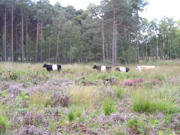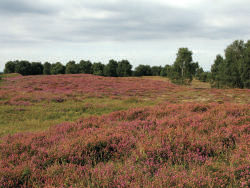Dear Mr Cameron,
The environmental movement has spoken out repeatedly against policies that put short term profit ahead of our countryside and wildlife, eroding our natural capital and quality of life.
But rarely have we been as incredulous as we were on Tuesday, upon hearing the Autumn Budget Statement. The stunning disregard shown for the value of the natural environment not only flies in the face of popular opinion but goes against everything the Government said in June when it launched two major pieces of environmental policy – the Natural Environment White Paper and the England Biodiversity Strategy.
It is increasingly clear that society needs a new economic model that accounts properly for our natural capital. Yet with this Statement, its “red tape challenge”, sudden cuts to solar subsidies, and its ill-conceived planning reforms, the Government is continuing an out-of-date approach that casts regulation and the environment as enemies to growth.
Is the environment really an obstacle to economic productivity or is it in fact the very basis of it, as well as of our national well-being? Not a hard question to answer and there is an increasingly powerful body of evidence that demonstrates this, including the Government’s own National Ecosystem Assessment.
How can the Government tolerate this gaping intellectual and political inconsistency, and walk with open eyes down a policy path that condemns future generations to a lower quality of life and to a massive and costly struggle to rebuild the country’s natural riches?
We appeal to you Mr Cameron to show leadership and champion long-term, sustainable economic policies that will bring much-needed prosperity without destroying all that millions hold dear.
Yours,
Stephanie Hilborne, Wildlife Trusts, chief executive
Mike Clarke, RSPB, chief executive
Shaun Spiers, CPRE, chief executive
John Sauven, Greenpeace, executive director
Andy Atkins, Friends of the Earth, executive director
***
This letter appears in today’s Observer
http://www.guardian.co.uk/politics/2011/dec/03/observer-letters-government-green-future
http://www.guardian.co.uk/uk/2011/dec/03/new-green-alliance-savages-osborne
***




